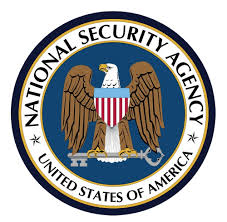Abraham Lincoln suspended habeas corpus during the United States Civil War. Japanese Americans were interred during World War II. There are always good reasons to side step the 4th Amendment when we perceive real threats to our way of life. This topic is again in U.S. Federal Courts and it has to do with a confrontation between the Solicitor General, Mr. Verrilli, and Senator Udall of Colorado and Senator Wyden of Oregon. They wrote to ask that the government correct its monitoring actions to comfort with the Patriot Act and U.S. criminal laws. In the Senators’ letters they complained that the Justice Department was intercepting Americans’ international emails and phone calls, domestically intercepting that is, and doing it without notice. Notice is required by law, but ignored.
The United States Supreme Court suggested that the real threat to our way of life is not from our enemies but from our elected public officials and there’s something to that. The issue arises today when the NSA gets hauled into Court for listening to conversations of Americans; ostensibly to look for terrorist plots arising from within. 
The Supremes reflected that perhaps there are other effective ways to save our way of life from terrorists. We agree, do you?
The constitutional guarantees freedom from unreasonable searches and seizures. Searches, not supported by affidavit, are prohibited. The Obama administration argues that national security needs should trump the fourth amendment. It all came together before United States Supreme Court and the resolution is neither satisfactory nor clarifying.
Judges routinely sign warrants for searches of people’s homes, papers, and surveillance on their communications. In criminal courts a motion to suppress is the legal remedy for an unlawful search or seizure. The analysis uses the totality of the circumstances test. In the evidentiary hearing, the burden is on the government to prove by a preponderance of the evidence that the search and seizure was reasonable. What the security agencies wish to substitute is the finding of a judge whose deliberations are secret and sources protected. When the National Security Administration listens in on communications, it can do so without a warrant and without judicial review: that was litigated before the United States Supreme Court in the Clapper case. There are more cases coming but the issue remains as current as today’s headlines.
On one side of the issue is the American Civil Liberties Union, when they wrote (when addressing the letters from Senators Udall and Wyden): “What these letters highlight is the extent to which the government was able to take advantage of the fact that the Supreme Court, as much as the American public, was operating in the dark about the scope of the statute and the way the government was using it.” And, on the other side was the Justice Department, which argued that its activity of scanning international calls and emails originating within the territory of the United States (and saving them) was classified information and not subject to court review.
 South Florida Criminal Defense Lawyer Blog
South Florida Criminal Defense Lawyer Blog



